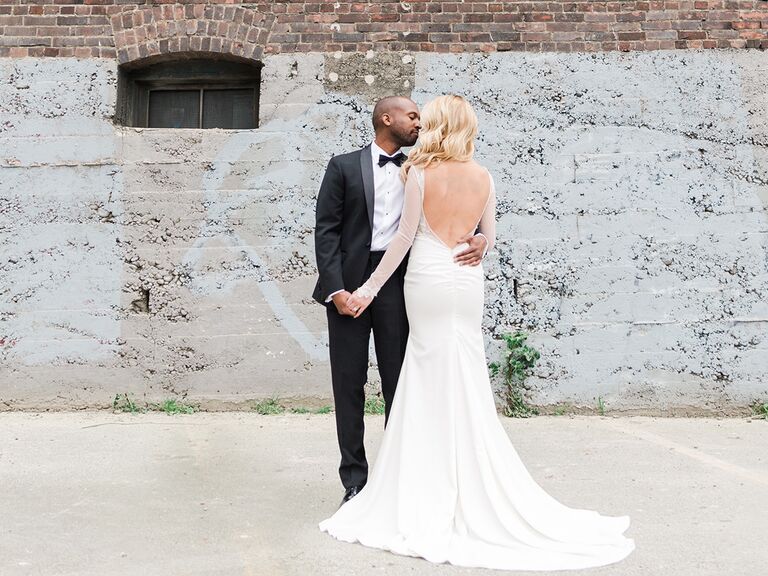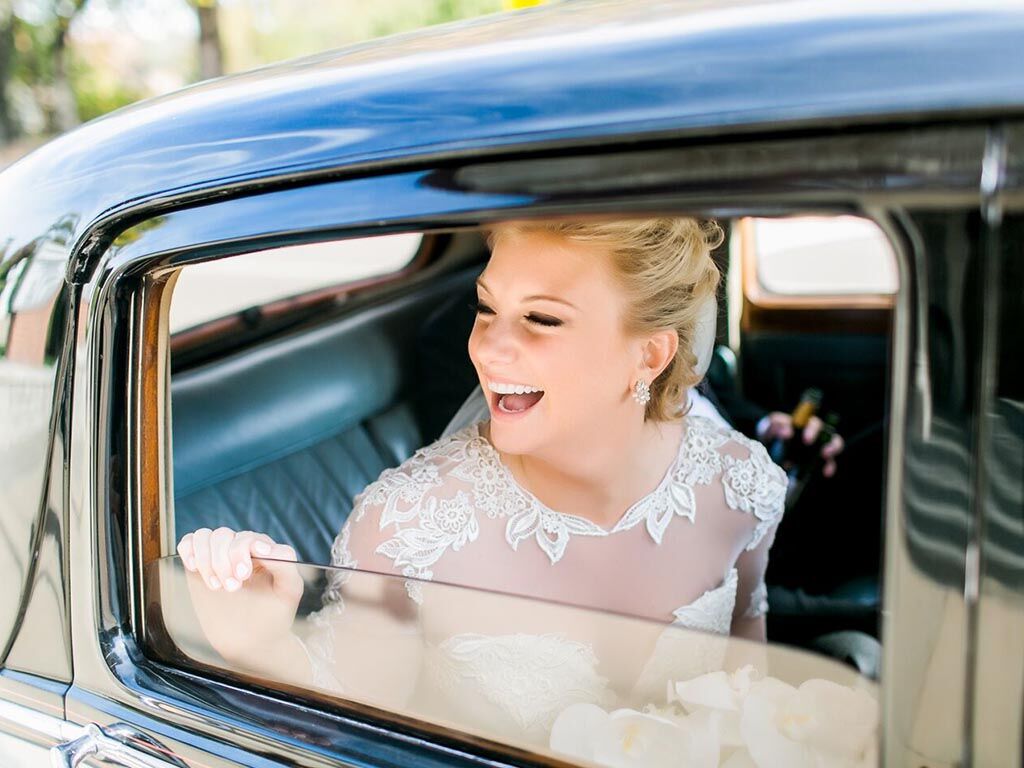5 Challenges With Changing Your Name That No One Tells You

After months, or maybe even years, of planning your wedding, the prospect of changing your name might seem rather simple—at least at first. Just sign a new name on your wedding certificate, and you're done, right? The reality, however, is that there are more challenges with changing your name than most people realize.
While it might seem like the only step is changing your name on your social media profiles and telling friends and family, the legal process involves a lot more paperwork and effort than most people initially expect. On top of the logistical side of things, there's also the emotional component that often gets overlooked. After years or even decades of being known by a certain name, you're suddenly given an entirely new one, and that can feel incredibly foreign. Your name is tied to your identity, your family and your sense of self, so changing it can be a significant emotional shift. This can be especially complicated if you're attached to your maiden name for personal, cultural or professional reasons.
Whether you're opting to take your spouse's last name, hyphenate or keep your own, this guide will help make the transition smoother and ensure you don't miss any crucial steps along the way. Because let's be honest—no one ever talks about how much time you'll spend on hold with the Social Security office or how strange it feels when your old name is still showing up on your email. So, let's dive into the pros and cons of changing your last name after saying "I do"—it's not always glamorous, but it's definitely worth knowing what to expect.
In this article:
- Reasons for Name Change
- Pros of Changing Your Name
- Challenges With Changing Your Name
- Disadvantages of Not Changing Your Name After Marriage
- What No One Tells You About Changing Your Name
Reasons for Name Change
Getting married isn't the only valid reason for changing your last name, but it is perhaps the most common one. "Having the same last name as your partner signifies to the whole world that you are together," says attorney Leah Weinberg. "If children are in their future, a lot of people change their last names to make it more simple so that the children have the same last name as the parents."
You might be wondering: Do you have to change your name? The answer is simply—you don't really need a reason for a name change. In fact, the decision to change your name is a personal choice. However, to make it legal you have to file paperwork.
Pros of Changing Your Name
There are many benefits to changing your name. For starters, changing your last name can symbolize the joining of two families as well as the beginning of this new chapter in your lives together. If you plan to have kids, sharing a last name can make it easier to navigate all of the legal paperwork (that comes with a name change cost) you complete together as a family unit. It's also easier in social circles to be a family with one last name instead of two or more.
Last, but not least, changing your name honors tradition for many cultures. It's often seen as a gesture of respect for cultural customs and a way to create a sense of connection and belonging with your partner's family.
Challenges With Changing Your Name
Ask anyone who's changed their name and they're likely to share some drawbacks to the process as well—starting with the paperwork required. Updating your name means tackling a lot of forms—like your Social Security card, driver's license, passport, bank accounts and more. The laws on changing your name can make the process feel overwhelming and time-consuming.
If you've built a career under your current name, changing it could cause confusion or make it harder for people to find you professionally. For some, their last name carries personal or family history, and changing it might feel like letting go of a piece of who they are.
Lastly, getting friends, colleagues and even yourself used to the new name can be tricky, and there may be a few awkward moments along the way. "Everyone is going to have an opinion—some people will be on board with you changing your name and others might question your decision," Weinberg says. "Just remember that it's your decision, and you don't owe anyone an explanation if you don't want to give one."



Disadvantages of Not Changing Your Name After Marriage
If you decide not to change your name—which is completely fine—it's worth noting a few disadvantages of not changing your name after marriage. First, it can be really confusing to others. People might assume you and your spouse do share the same last name, leading to mix-ups in social or professional settings. This can be especially tricky when dealing with things like travel or joint accounts.
If you have children during your marriage, you may also face additional questions or have to provide additional confirmation of your status as a parent if your last name differs from that of your child, notes Ernestine J. Mings, a partner in the Matrimonial and Family Law Practice at Blank Rome in New York. "That can be a real nuisance, no matter how secure you feel about your decision," she adds.
What No One Tells You About Changing Your Name
From navigating endless paperwork to redefining your identity, there's more to the process than meets the eye. Here's what you need to know before making this life-altering decision.
1. It Might Take a While to Make the Decision
Figuring out how to change your name when you are getting married and deciding whether or not to do so can be part of an important discussion about expectations, balance and compromise with your partner, Mings explains. "My fiancé (at the time) assumed that I would change my name to match his surname when we got married," she says. "In deciding whether or not I wanted to change my surname, we talked about why it was so important to him that my surname match his as well as about how important it was to me to maintain my own identity in our marriage, whether I decided to change my name or not." After thoughtful conversations, a bit of negotiation (lawyer skills in action), and some compromise, she chose what felt right for her and their relationship. Her husband fully supported her choice, no matter what.
2. It's Not Just One Form—It's a Whole Process
Changing your name isn't a one-and-done deal. You'll need to update everything from your Social Security card and driver's license to your bank accounts, subscriptions and even your email. It can take weeks or even months to fully transition. "No one tells you how much work it's going to be to change your name, and how months and maybe even years will go by and you'll still be realizing you forgot to change your name in certain places," Weinberg says. "It's kind of like when you move and have to update your mailing address everywhere—some places you won't remember to make the update until you receive a piece of forwarded mail (or a piece of mail with your old last name on it)."
3. It Might Feel Emotional
Letting go of your last name can bring unexpected emotions. For some, it feels like losing a piece of their identity or detaching from their family history. It's more than just a name—it's tied to who you are. "For some people, it can feel like an existential crisis—who is this new person and what are they like?" Mings says. "Deciding whether or not to change your name can also stir up feelings about your identity that you never really thought about previously—and that can be a more emotional experience than many people might realize."
4. Your Digital Identity Needs Updating Too
Beyond official documents, your social media profiles, email signatures and online accounts need to be updated as well. It's easy to forget how many places your name appears until you start making changes. Create a checklist of all your social accounts and digital platforms—like email, social media and subscriptions—before you start. Update the most visible ones, like social media profiles, first, and use a consistent timeline to keep everything organized.
5. Some People Won't Get It Right—At First or Ever
Some people might not adjust to your new name immediately—or even at all—and that's completely okay. It can be frustrating but try to be patient and gently correct them when necessary. Often, it's just a matter of habit, not a lack of respect. With time, they'll likely get used to it, even if it takes a while.




















